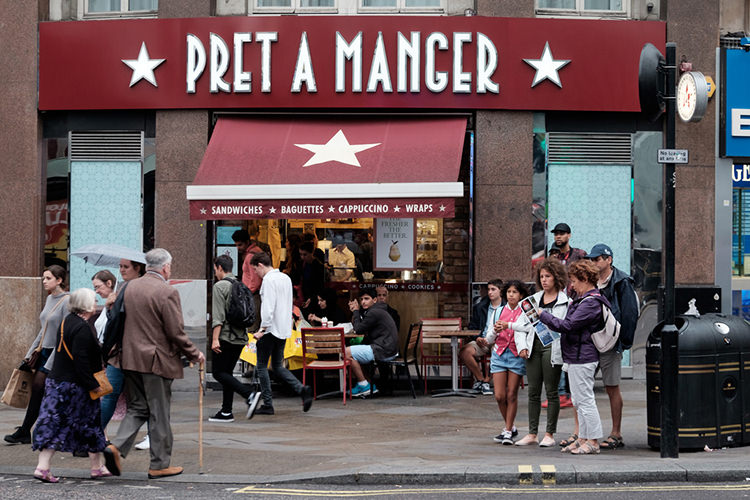It has been easy to criticise Pret-a-Manger’s clunky response to the tragic death of one of its customers due to an unlabelled, sesame-seed infused baguette. It always is when you are not inside the organisation and party to the debates and decisions.
Yet sorrows come not as single spies but in battalions. Now there is news of another allergy-related Pret customer death – apparently due to a dairy-free ingredient from a third-party supplier not being so.
This latest disclosure further damages Pret’s brand (how people feel about it) and reputation (what people say about it) because a media and public narrative has taken hold about the company. Being seen as responsible for the death of your customers is not a good place to be at any time. And if once is unfortunate, then twice is surely careless?
The narrative has taken hold less because people have judged the company on the facts but more because they instinctively know how they feel about the case (just read the tweets and ‘Have Your Say’ comments). And why not? A teenage girl with her life ahead of her; a heuristic belief that a food producer should label all allergens on all products; a suspicion that if you do not go the extra mile to label products when it is not a legal requirement then it must be about saving money.
The reputation damage that Pret is suffering is because the issue is directly about its brand – “a person’s perception of a product, service, experience, or organization”, call it their gut feeling.
Pret’s brand revolves first around its food being natural and by implication healthy – but clearly not if you have severe allergies and warnings are inadequate. And second, it offers a friendly, human consumer experience (as demonstrated by the behaviour of shop staff and the tone of its marketing) – whereas its PR response has been awkward at best and cold at worst (see the CEO’s televised brief statement or coverage of the court evidence given by the company’s Compliance Director).
The company’s core values of passion, clear talking and team work do not seem to have been displayed by its leadership during the past week. The start was bad enough but Pret did not seem to know how to respond to a second wave of media and public criticism arising from the revelation that nine previous instances of allergy sufferer complaints and hospitalisations had not led to a change in its food labelling policy.
How much of the damage to Pret’s brand and reputation could have been avoided if it had doubled down on its powerful core story (which seems to be about wanting to make you feel good), framing and contextualising its statements with it and using it to inform its management behaviour throughout?
Fortunately for Pret, it has banked a lot of public goodwill over the years. Its belated announcement that it would label allergens on its products – albeit once there has been a coroner’s case and negative publicity – staves off a crisis. Memories will fade.
The root problem was a flawed business process – no direct allergen labelling on its products. But issues and crises can present opportunities. It is why in Electric Airwaves’ media training we show people how effectively to communicate perspective in their interviews that frames and contextualises how people judge your crisis. Alas, throughout the past week it has felt like Pret has been absent from the battle for its own brand and reputation.

